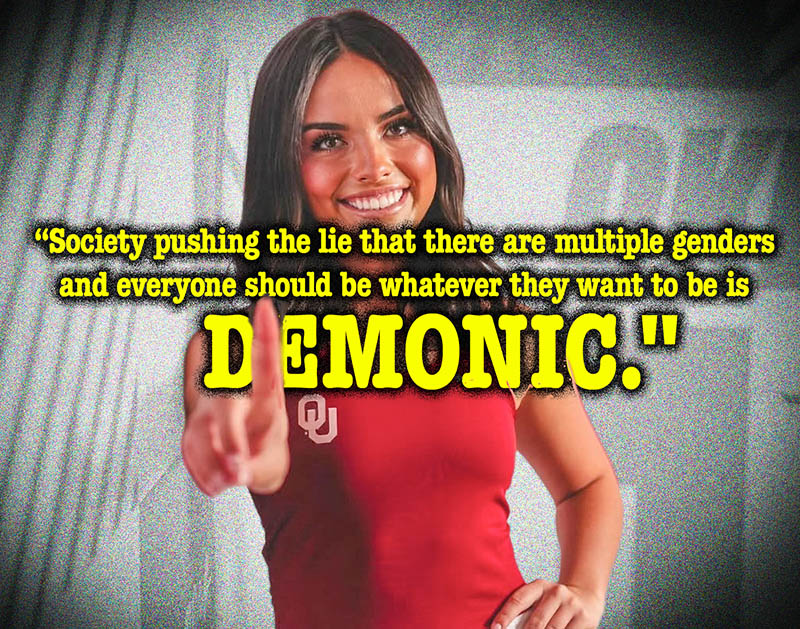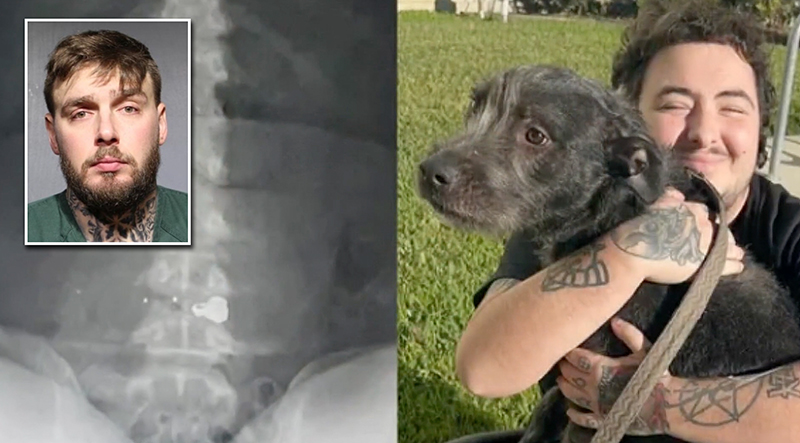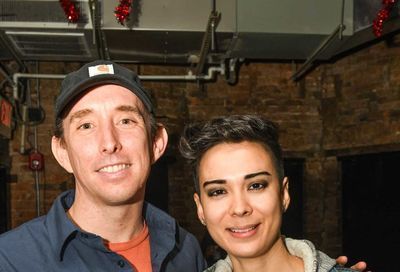Political Transition
Democrat Dana Beyer fights to be Maryland's first transgender delegate
To say that Dr. Dana Beyer has had a rich life is the definition of understatement. In her 54 years, she’s campaigned for Robert Kennedy, graduated Phi Beta Kappa from Cornell, and earned a medical degree from the University of Pennsylvania School of Medicine. She has offered her medical services in Kenya, the Himalayan foothills, and to low-income patients in Hattiesburg, Miss. In the 1990s she went back to school to earn her master’s degree in organic chemistry.
Today, retired from her medical practice, Beyer has thrown her hat into the political arena, running to be one of District 18’s three delegates to the Maryland General Assembly. Her experience is complemented nicely by her two picture-perfect sons. Beyer’s two ex-wives, however, may seem something of an anomaly.
Beyer, should she win a seat in Annapolis, would enter a very exclusive club as one of only a handful of openly transgender people who have been elected to public office. While even a Beyer candidacy, let alone a win, can’t help but raise transgender awareness, Beyer has a platform that goes far beyond gender issues. She’s a vocal proponent of universal health care, the environment, political reform, and a host of other issues that make her the sort of left-of-center progressive popular in much of this suburban district that includes Chevy Chase. Accordingly, the race here is historically decided not during the general election in November, but during the Democratic primary Sept. 12.
 Beyer |
Beyer spoke with Metro Weekly in her home with her golden lab, Kyra, never far away. And while Kyra is eager to cozy up to any visitor who will offer a pat on her head, Beyer is quite a bit less needy. She makes it clear she hasn’t taken up the race to Annapolis to be a lapdog in the capital.
”I’m not going there to be a wallflower,” she insists. ”And I’m not intimated by Republicans or conservatism or anything like that. And I wouldn’t be doing this if I were. It wouldn’t be worth the effort.”
METRO WEEKLY: You’ve said that you identified as female at an early age.
DANA BEYER: I was 11 years old when I first mentioned it to my parents. That’s when it became a serious issue. My earliest memories are that I was always a girl and there was something wrong about people calling me a boy, but those memories really only go back to about age 6. I remember thinking, ”Gee, I would really like to look like the ‘Breck girl’ on the TV commercials.”
MW: What about your relationships with other children?
BEYER: I was more comfortable with the girls. I hung more with the girls, but I didn’t exclusively do so. I tried to engage in sports — I was not very competent at it. I was much more bookish, as the phrase used to go. I grew up in a Jewish environment. My parents were Conservative but they sent me to a yeshiva, which is an Orthodox Jewish day school, so I was with a bunch of guys who weren’t quite athletic either. So I wasn’t the runt of the litter, as has been true for many of my friends in public school.
MW: Did you ever hold any class office?
BEYER: I never did that because I was never comfortable being in public. I was usually a leader and a troublemaker behind the scenes.
MW: A troublemaker?
BEYER: In the yeshiva, yes. I didn’t like the quality of my math teacher in seventh grade, so I made sure that the students brought it up to their parents. We had him dismissed. I guess you’d call that political action, but I wasn’t president of the class. I was not comfortable going out and saying, ”Hi, vote for me,” because I wasn’t comfortable with the ”me” part of it.
MW: When did you become comfortable with the ”me” part?
BEYER: Jan. 13, 2003, which was when the drugs finally wore off after my surgery and I went out for the first time as myself and felt good. It took me 50 years to get to that point. I was never willing to put myself out publicly [before then] because I felt wrong, a fraud, dishonest, totally uncomfortable being in public.
MW: In your campaign, you’ve also said that 9/11 was a turning point for your decision to have gender-reassignment surgery.
BEYER: It wasn’t a turning point per se, but it was the final catalyst that pushed me over the mountaintop and sent me to do this. I had tried to [gender] transition back in 1992 to ’94 and I got about halfway there. Then I backed off. I started again about 2000, but it was rough going. I needed a kick to get me over, and Sept. 11 did that.
I was at a best friend’s wedding in Manhattan on Sept. 20 [2001] and it just all came together — the frenzy of this Jewish wedding, the fact that he had waited 50 years to finally get married, all the family was there together and glad to be alive, yet the pall of the smoke at Ground Zero was visible. My recognition at that time was that what had truly inhibited me from transitioning was looking around at all my friends from the yeshiva days, my elementary school friends, and worrying about what would they say. I expected to be rejected by all of them, which is a very common feeling — even more so because many of them were still Orthodox. But after 9/11, I looked at them and I said, ”You know, it really doesn’t matter anymore. I’m just going to do this and if they accept me, they accept me. If they don’t, they don’t.”
MW: And did they?
BEYER: All of them. I haven’t lost anybody. The only thing I lost was my marriage, but I didn’t lose [my second wife] as a friend. If anything, I’ve gained much closer friendships, much closer family ties as a result.
MW: I want to ask you, specifically because you’re an M.D. and because universal health care is part of your platform, the process of transitioning — did you find it to be unnecessarily bureaucratic or cumbersome?
BEYER: No. Because I was an M.D., I was treated with much greater respect than the average person would be. I basically was able to dictate what needed to be done. I’m sure you’re well aware of the ”therapy” one must go through in order to get approval, which is absurd. It’s the only medical procedure one needs psychiatric approval to undergo when it’s not even a psychiatric problem in the first place. I went in there saying, ”Look, I’m a doctor. I know who I am. I’ve been through all this. Let me tell you what it’s about. And this is what I need from you.” Nobody gave me a hard time at all. They wouldn’t, because I have the credibility and self-confidence of being a physician. But your average transperson out there doesn’t have that, and they’re often not treated with the respect they deserve.
MW: With universal health care, I don’t know many American M.D.s who seem think it’s a good idea.
BEYER: Actually, your experience is remarkably limited. When I go out canvassing, I meet lots of doctors, and [the health care system has] gotten so bad that they all support it now as well. There’s a lot less resistance out there. My former chief of medicine during my medical school years at Penn, Arnold Relman, has come out in the New England Journal of Medicine, the most prestigious medical journal in the world, in favor of a national single-payer plan.
MW: Is there one country’s system that you look at that would be applicable here?
BEYER: No, I don’t think so. We’re different and there will probably be more of a two-tier system here because Americans simply don’t want to be told they have to do something, and they can’t do something else in addition to it. We’re talking about a basic, affordable, high-quality system. And then if you want to go for plastic surgery, it will cost you more. If you want facial surgery for your transition, it would cost you extra. You can buy a separate policy to cover that. There are lots of opportunities for physicians to make extra money outside of the system and for people to spend more if they want to.
I’m ashamed that we’re the only civilized nation that doesn’t provide this. I’m learning, too, during this canvassing. When I knock on these doors, when I say I’m in favor of universal health care, people tell me their stories. Most kids these days, when they get out of school and go to do their first job, don’t get health care with that first job. In the past week I’ve run into a half-dozen parents who have brought that to my attention. There are always gaps in these systems, and now there’s this new gap.
MW: How would you describe the demographics and values of District 18? Are they aligned with your own?
BEYER: I think this is one of the most progressive districts in America. It’s highly educated, it’s progressive, it’s mixed as far as identity politics goes. You have, I think, 12 percent African Americans, 18 percent Hispanics. It’s highly educated and very liberal.
I believe most of the people, not only in this district, but I think most Marylanders, really are progressive people and they’d like to see their money spent on things that they desire rather than on unnecessary, immoral wars and such. They really want to live in a first-rate, high quality community. The main problem I see is that we’re not willing to admit that you have to pay for that. We’re willing to pay for things in our private lives, but we don’t seem to be willing to pay in our public lives. I think that’s beginning to change.
MW: You’re running for office, so you must be hopeful you can change things.
BEYER: Oh, sure. Whenever there’s a need for someone to speak with the Christians, fundamentalists, on issues of sexuality, [I’m there]. I have my yeshiva background. I know how fundamentalists think because I used to think that way when I was growing up. I understand when somebody who is religious says, ”You don’t respect me.” What they’re saying isn’t, ”I want you to believe what I believe.” They’re just saying, ”My faith, my religion colors my moral values and colors the way I speak and look at the world. I want you to relate to that.” And I can do that. And I can do it in the original language.
MW: How does your religious upbringing influence your values today? What did you come to reject and what do you embrace?
BEYER: I come from a very egalitarian, ethical, progressive Jewish tradition. The only thing I have rejected has been a fundamentalist approach to religion and spirituality. Even during the most rigid times of my education, Jewish education deals with questions all the time. So much of the Talmud, for instance, ends [with] tayku, which means, ”We throw our hands up, we don’t know the answer, let’s move on.” So there’s very little of this rigidity, the literalism that you get out of the Protestants these days. I guess the only thing I rejected was a very simplistic, superficial reading of the Torah. But I’m still very Jewish in my core — culturally, historically, spiritually, morally.
MW: There are eight candidates running for three seats in District 18. How do you set yourself apart from the other seven?
BEYER: Well, first of all, there are two incumbents and I’m competing for the vacancy. I’m not running against the incumbents, so I put that aside. I’m just running against five earnest young men. I’m glad that there are young people getting involved in the political process, but I’m the candidate with the maturity, life experience, professional experience, the social and diplomatic skills to be a legislator, to be a leader. [I have] the political will, courage and fearlessness from my life’s history to stand up and change the agenda, which is what Democrats have not been doing and what the American people are upset with Democrats for not having done, not having had a backbone. Having had [gender] transition, I’m not afraid of anything. Nobody scares me.
MW: Has your status as a transgender woman hurt you in your campaign? Have you experienced any sort of transphobia?
BEYER: No. People rarely say anything. The few times I’ve sat down with people on their porch and really gotten into who I am and who they are, they’ve always spoken of it in an honorific sense: ”Wow, you’ve accomplished so much. You were a doctor in Nepal, and you’ve gone through a gender transition and you’ve raised your kids.” They just throw it in the mix, which is what it is. It’s part of the mix. Nobody has said anything negative. I’ve never heard anybody bring it up. There are still six weeks to go [until the primary], and who knows? But, for the most part, it’s a good bunch of people who are running, and I would like to believe that we’ve all agreed that we’re going to act decently. It’s really hard to do negative campaigning when you’re all progressive. I mean, what are you going to say? ”Well, you’re for single-payer and I’m for employer-based insurance. You bastard!”
I have a campaign team with 60 years’ worth of experience. They said, ”Look, you’ve been living here for three years. Just assume that everybody knows.” And so I just assume that everybody knows. I talk about everything else. I don’t bring it up and they don’t bring it up. Nobody has ever said, ”Oh, you’re the trans person.” They don’t say, ”What was it like being a guy?” or anything like that.
MW: If you win the nomination, do you think it might come up then?
BEYER: You mean for the general election? No, the Republican Party had to drag four people out of a basement somewhere to run against, just to not be embarrassed.
MW: How do you identify your sexual orientation?
BEYER: I’m bi, but again, it depends on how you define that. I’m not trying to be difficult, but my erotic desire has always been towards men. My experience has always been with women, until the past few years. So by definition I’m bi, right? Right now at this stage in my life, it’s tough finding any kind of partner. I would just like to find somebody I could love and be loved by and it really doesn’t matter what their sex is. You know how complicated this gets. If you saw a photo of me from 30 years ago and you’re thinking, ”Well, she was interested in guys so that makes her a gay man.” Well, that’s the last thing in the world I ever was. I never identified that way. Nobody ever labeled me that way. Nobody ever could have labeled me that way because that was completely wrong. You have to be very careful. You have to define the two protagonists in a relationship before you can define the relationship.
MW: With the campaign specifically, can you share any of your strategy? Are there endorsements that you’re seeking?
BEYER: My first [endorsement] was the [Gay & Lesbian] Victory Fund. That was the toughest because the Victory Fund is unlike any of these other single-issue groups. The Victory Fund vets you thoroughly. They’re not interested in how you line up politically or socially or ideologically. They’re interested in whether or not you’re going to win. They want to make sure you have a viable, valid campaign plan, that you’re a credible candidate. That application was sort of like doing a graduate dissertation, or a year of self-psychoanalysis. That was done early in the campaign, and it helped me focus on what needed to be done.
I got Equality Maryland’s endorsement a couple of days ago. I got the Montgomery County Public School Retiree Association endorsement yesterday. A lot of people don’t decide until the very last minute. A lot of them wait to see who’s winning. They want to back a winner. But it’s also who you know. Since I was on the board of Equality Maryland, obviously I had an ”in” with Equality Maryland.
MW: Say you don’t win the primary…
BEYER: God forbid! [Laughs.]
MW: God forbid. Speaking hypothetically, worst-case scenario — what do you see yourself doing if you don’t win?
BEYER: I would just continue doing what I’m doing. I’m sure other opportunities will arise, just as a result of this experience. Every door I knock on, I am changing the culture. I am changing hearts and minds, just by doing that. All I have to do is get out and do it. I don’t even have to get a single vote and I’ve accomplished a great deal.
MW: If you get the seat, it would be a milestone. How far beyond Maryland do you think that would go? You would be the first trans legislator in America at the state level, and one of the few in the world.
BEYER: One of three, one of whom has my surname: Georgina Beyer in New Zealand. We’ve communicated. She thinks it’s hilarious, as do I. She’s retiring next year so I will be only one of two.
MW: Has she offered you any advice?
BEYER: ”Just go for it. You can do it.” She saw my Web site and said, ”It sounds like you’ve got it together. You can handle it.” There’s a woman named [Vladimir] Luxuria, who is a Communist in the Italian Parliament. I don’t know if I have too much in common with her, but who knows?
I hope it will be an inspiration to some of my friends and others. Part of why I’ve been doing all this is to simply give back to those who paved the path before me. I feel that I’m in a position to do it. I feel obligated to do so. I feel I can help out. I know how difficult it was for me all those years to come to grips with this and finally decide to act. I want to see kids transitioning when they’re kids, not when they’re 50.
MW: Your ambition seems to have followed you throughout your life.
BEYER: My kids say that when I set my mind on something I’ll see it through. Now what I’m seeing through is getting elected. Once I’m elected, seeing it through is getting health care taken care of and dealing with all the other issues that come up. Energy and the environment are important to me, too.
A few months ago, there was no vacancy, so I wasn’t running for anything. I had no plans to run for office. This is just another step in my life story and my growth. It gives me a platform that’s a little bit broader than what I had before, to make a contribution.
So when you say ”ambitious,” who knows, really? It’s silly. To give you an idea of the difference between living in the closet and living outside of it, for most of my life, I was focused on these Communist-like ”five-year plans.” I had four-year plans: four years of high school, four years of college, four years of med school, four years of internship and residency. Set up your practice, have your kids, do this and that. I was never enjoying the here and now.
Since I’ve transitioned, I’ve just given all that up. Who knows where it’s going to go? Four years ago, I couldn’t have conceived of running for office anywhere. I couldn’t have conceived being on a stage in front of people and feeling comfortable. Now I enjoy it. I’ve become an extrovert, and that changes things.
I’m ambitious in that I want to give back, I finally am able to give back. I want to make the world better for my kids and I think I’m capable of doing it. I have the credibility and the maturity to do it. I’ve spent my life with my eyes open and my ears open, listening and reading and traveling. I’ve been around the world three times. I’ve worked abroad, so I have a pretty broad perspective on the world. I think I can make a fair contribution. But I don’t think Hillary needs to worry.
More information on Dana Beyer’s campaign can be found at www.danabeyer.com.
Support Metro Weekly’s Journalism
These are challenging times for news organizations. And yet it’s crucial we stay active and provide vital resources and information to both our local readers and the world. So won’t you please take a moment and consider supporting Metro Weekly with a membership? For as little as $5 a month, you can help ensure Metro Weekly magazine and MetroWeekly.com remain free, viable resources as we provide the best, most diverse, culturally-resonant LGBTQ coverage in both the D.C. region and around the world. Memberships come with exclusive perks and discounts, your own personal digital delivery of each week’s magazine (and an archive), access to our Member's Lounge when it launches this fall, and exclusive members-only items like Metro Weekly Membership Mugs and Tote Bags! Check out all our membership levels here and please join us today!



























